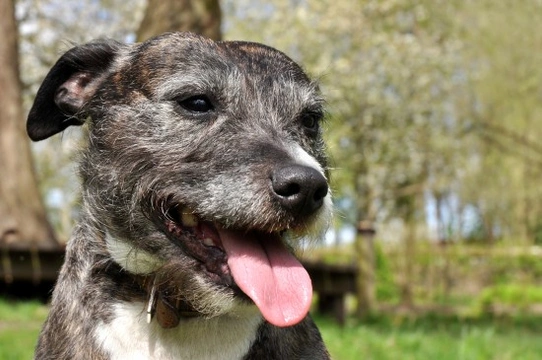
Is my Dog Suffering from Alzheimer's?
Alzheimer's is a very scary condition which sadly affects too many people as they grow older. When dogs and even cats start to show their age, they too can suffer from the disease only in the world of cats and dogs, the condition is called cognitive dysfunction. For pet owners, it can be a very worrying time when a beloved dog starts to show any symptoms which is why it's so important to understand what is happening and how to deal with pets so they stay safe and out of harm's way.
Cognitive Dysfunction in Dogs Explained
It is more usual for older dogs to be affected by cognitive dysfunction. Owners tend to pick up on the fact there may be a problem because their pets seem disoriented even though they are in very familiar surroundings. Another change in behaviour that dogs with the condition develop, is a change in their sleep patterns, all too often sleeping more during he day and less at night.
Another very upsetting symptom is when dogs start to lose interest in things that go on around them and are reluctant to interact with their owners. Dogs that have been very clean throughout their lives will also start to have little accidents"" around the home too which can be a very worrying symptom.
However, many of the symptoms associated with cognitive dysfunction could also be caused by a number of other health issues which is why it's so important to have a dog checked out by a qualified vet. Should you notice a big change in your dog's behaviour and they show any of the above symptoms, you should take them along to see the vet in order for a correct diagnosis can be established sooner rather than later.
Why Do Dogs Suffer from the Condition?
Studies and research carried out on cognitive dysfunction suggest there are many things that could cause the condition with oxidative damage to brain cells being one of the major factors. These studies have shown that a protein called B-amyloid starts to form plaques in a dog's brain which as result causes cells to shrink and die. On top of this, messages that transmit information in the brain are altered and the result is a change in a dog's behaviour.
Cognitive Dysfunction and Alzheimer's are Quite Similar
Both cognitive dysfunction seen in dogs and Alzheimer's which is a disease that affects people, are quite similar with the changes in behaviour being pretty much the same in both our canine friends and people. Studies have shown the changes in brain patterns are similar too.
How to Help Your Dog if They Develop the Condition
The first thing you should do if you notice a change in your dog's behaviour is to get them checked out by a vet. However, there are things you can do to help your pet and this includes supplementing their diet with antioxidants. You should also enrich your pet's life as much as possible by interacting with them as often as you can. The thing to bear in mind, is that both these actions work very well if done together but are not so good when done on their own.
Feeding dogs with cognitive dysfunction an oxidant-rich diet ensures they get valuable vitamins, namely C and E as well as fatty acids such as the following:
- DHA
- EPA
- L-carnitine
- Lipoic acid
The diet should contain fruits and vegetables that are antioxidant-rich which includes things like:
- Carrot
- Pumpkin
- Spinach
When it comes to spending more time interacting with a dog that's developed cognitive dysfunction, the more you spend with them, the better the outcome would be. Time spent with your dog should include all the usual things like going out for interesting walks in familiar places. However, other things you can do include the following:
- Making sure your dog has lots of puzzles to play with and figure out
- Playing lots of games with your dog will keep them focussed, this includes hiding their food so they have to find it
Cognitive Dysfunction is Not a Normal Part of the Ageing Process
The thing to bear in mind, is that cognitive dysfunction is not a normal part of a dog's ageing process. It is a medical condition and as such needs to be treated as one by a qualified vet. All too often, the first signs there may be a problem are very subtle and therefore quite difficult to actually spot with many owners putting things down to something else which includes the fact their dogs are getting old.
Regular Check Ups are a Must
As dogs get older, just as with people, they start to feel their age. However, as previously mentioned cognitive dysfunction is not a normal part of the ageing process in dogs which is why if you notice a change in your pet's behaviour, you should take them to the vet sooner rather than later so a correct diagnosis can be made and other causes ruled out. The earlier the condition is picked up on, the better the outcome for your dog.
""



